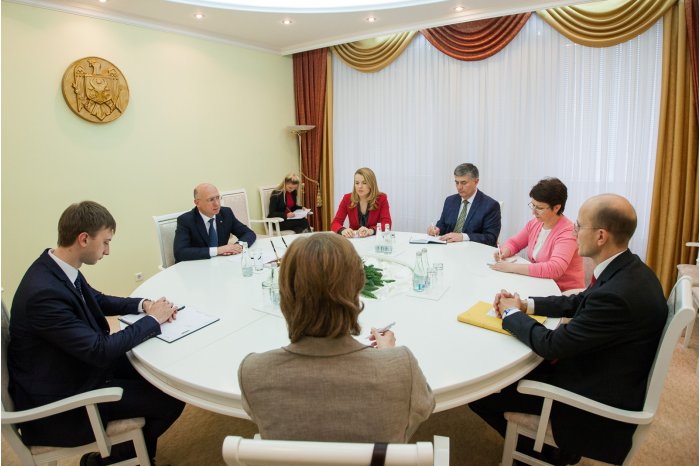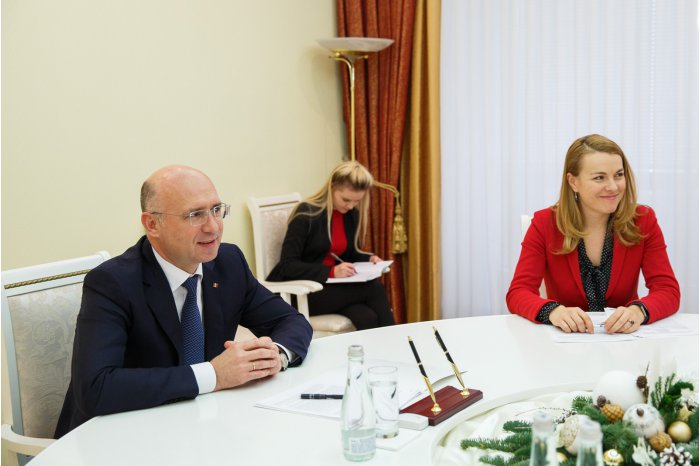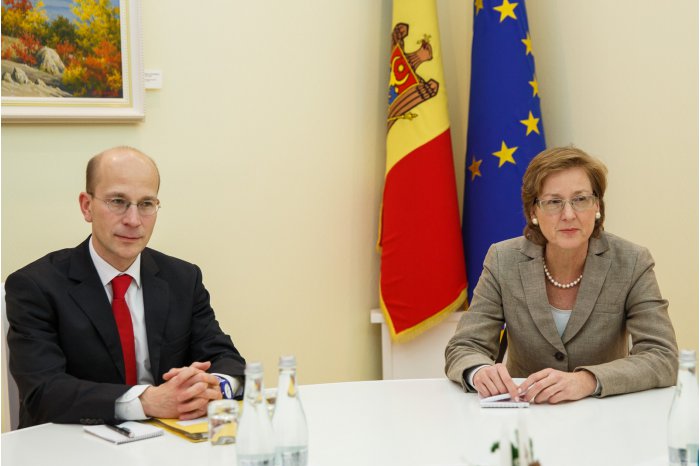Germany encourages Molfovan government to continue reforms' process
19:17 | 15.12.2017 Category: Official
Chisinau, 15 December /MOLDPRES/ – Prime Minister, Pavel Filip, met with Commissioner for Eastern Europe, Caucasus and Central Asia at the German Foreign Ministry, Ambassador Andreas Peschke, today. The parties exchanged views on evolution of implementation of reforms in Moldova, priorities of Executive for 2018 and the Moldovan – German cooperation, the government’s communication and protocol department has reported.
The PM reported on social reforms implemented by the government, efforts to improve business environment and reform of the local public administration. In the context, Prime Minister specified that although year 2018 is an electoral one, the government is going to keep away from campaign, and remains focused on achieving the reform agenda. The priorities for 2018 are justice, education, with a special focus on road infrastructure.
At his turn, Ambassador Andreas Peschke appreciated the efforts of the government, encouraging the continuation of reform process. The official also noted the strengthening of the Moldovan – German collaboration, mentioning both advancement of political, economic and cultural dialogue. "We succeeded in both Chisinau and Berlin to highlight the quality of our relations. I want to continue working together in the same spirit," said the diplomat.
At the same time, Andreas Peschke appreciated constructive role of Moldova in organizing the Eastern Partnership Summit, emphasizing that Moldova has had a fair approach and focused on concrete results within that forum.
A special topic of the talks was the advance in the Transnistrian settlement process, and agreements reached between Chisinau and Tiraspol at the end of November 2017 were welcomed. "The progress achieved is due to the working groups concentrated on each segment, but also involvement of Ukraine. We are currently looking for solutions to the problem of Transnistrian registration plates. This year we will focus on security issues and a special status for the region," said Pavel Filip.



